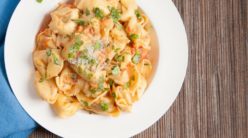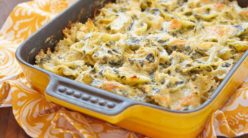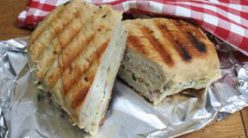[ad_1]
The blog of cooking-ez.com
You may well have a blender in your own kitchen. You know, that useful gadget that allows you to liquidize stuff at high speed into a smooth liquid. Of course, the most obvious use that comes to mind is for soups: if you have boiled some vegetables in water, with just a quick blast of the blender, youll have a smooth, creamy soup.
At this point, we really ought to distinguish between the 2 different types of blender: “stick” and “classic”.
Stick blenders (the sort professional cooks sometimes call a “giraffe”) are hand-held and are designed to be plunged directly into the bowl or pan when making soup, compotes, etc. They are usually simple machines and relatively cheap. They look like this:
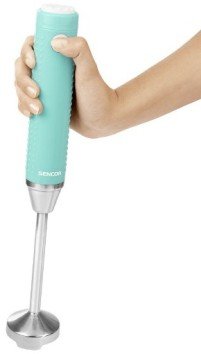
The other type are a little more complicated and designed to stand on a worktop. The main difference is that the food is put into the blenders own bowl or goblet (glass or plastic). Then you need to put the lid on before switching the machine on. They look something like this:
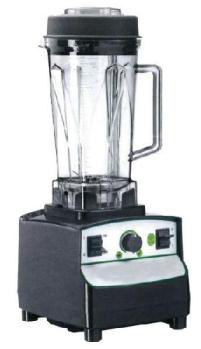
Stick blenders are fairly self-explanatory. For the second type, theres one trick its important to know.
When blending, there is often a mix of different textures a liquid ingredient being mixed with a more solid one even if the end result is more or less a liquid. When making homemade pesto, for example (which, its worth saying in passing, is far superior to what you find in the shops), you will be blending liquid olive oil and lemon juice with solid pine nuts and basil leaves.
And this is where knowing the trick comes in: you should always put the liquid into the goblet first and only then add the solid ingredients. If you do it the other way round, your ingredients may well not mix together properly, with the liquid staying on top of the blended solids. You will be obliged to stop the blender several times to poke at it and stir with a spoon, or even worse you might be tempted to try and intervene with the blender still running, which is highly dangerous.
To see this in practice, heres a photo taken while making a flognarde (a sort of egg custard from Frances Limousin region). One stage of the recipe involves blending the eggs with a mixture of flour and sugar:
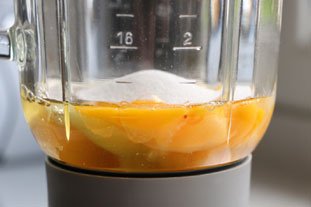
You can see how the eggs (liquid) go in first, with the flour and sugar added on top. This ensures rapid and even mixing, as you can see here:
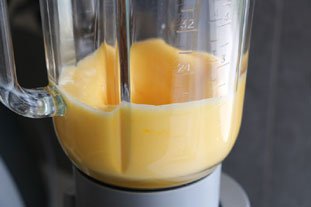
This goes for all blenders, even the most sophisticated ones that heat and cook, such as Thermomix.
To sum up: when blending different foods, always put the liquid ingredients into the blender goblet first, before adding the solid ones.
Last modified on: May 31th 2017
[ad_2]
Source link


